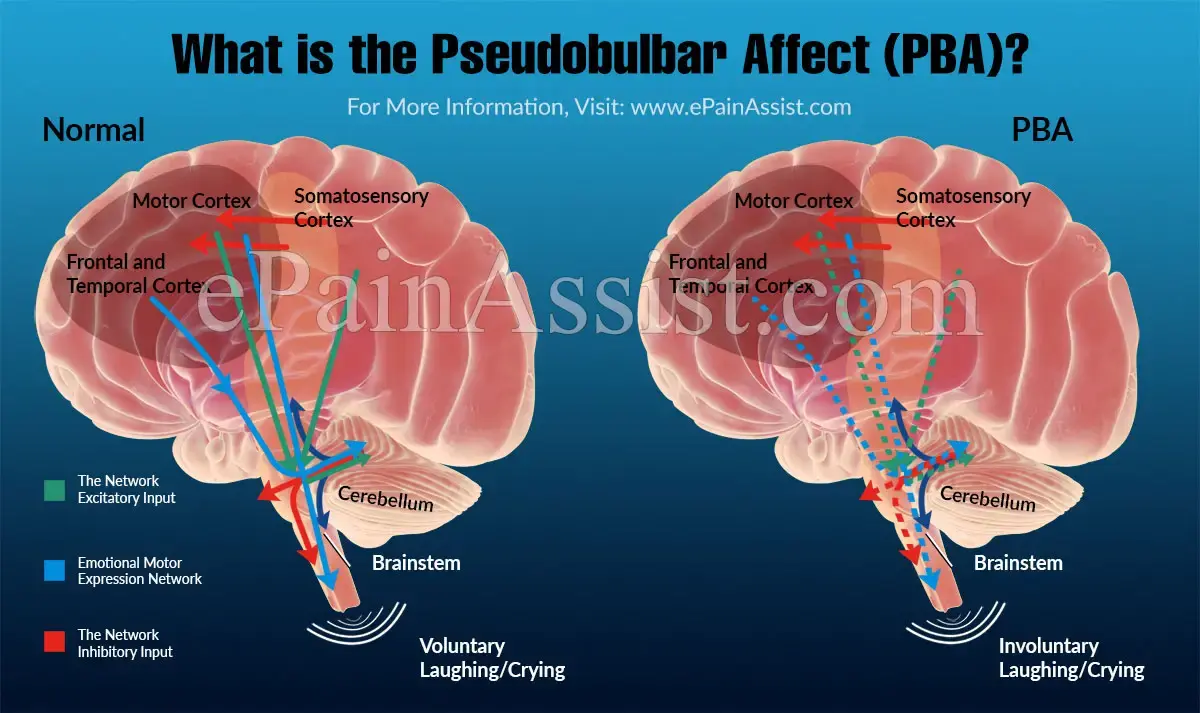Can Pseudobulbar Affect be Cured?
Sometimes
Management can help control symptoms, but a complete cure may not always be achievable; outcomes depend on the underlying cause and response to treatment

What is Pseudobulbar Affect?
Pseudobulbar affect is a neurological condition characterized by uncontrollable episodes of laughing or crying that are disproportionate to the individual’s emotional state. Treatment may involve medications. Regular monitoring is important for assessing symptom control and adjusting treatment as needed.

Clinical Aspects

Characteristics
Neurological condition characterized by involuntary and uncontrollable episodes of laughing or crying

Symptoms
Involuntary episodes of laughing or crying that are unrelated to the person’s emotions

Diagnosis
Clinical evaluation, sometimes imaging

Prognosis
Variable, depends on underlying cause

Complications
Emotional lability, potential for social impact
Etiology and Treatment

Causes
Neurological damage, traumatic brain injury, neurodegenerative diseases

Treatments
Medications (antidepressants, dextromethorphan-quinidine), counseling

Prevention
Medications (antidepressants, dextromethorphan-quinidine), counseling
Public Health and Patient Perspectives

Epidemiology
Common in certain neurological conditions

Patient Perspectives
Management tailored to underlying cause
This information aims to provide a general understanding of the subject matter, but individual circumstances can vary significantly. Please remember to consult with healthcare professionals for personalized advice and guidance.
Share: